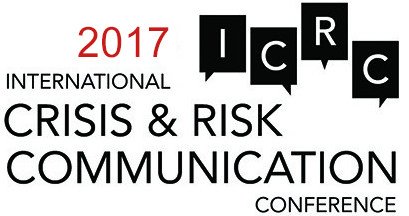
Public Affairs Engagement Division of Headquarters Air Force Public Affairs
Pentagon
Reba Good is a recent graduate of George Mason University’s communication master’s program with an emphasis on Strategic Communication. Reba grew up in New Jersey until she was 12, after which her family moved to Kansas. Her father is from Pakistan, and her mother’s ancestry traces back to the Mayflower. Growing up in a bilingual, multi-cultural household helped her appreciate the nuances of good communication, which has also influenced her style as a professional communicator.
Reba completed her undergraduate degree at the University of Kansas and became an Air Force officer in 2006 through the Reserve Officers’ Training Corps program, while double majoring in political science and French. Her Air Force career has provided opportunities to work all over the world, including various places throughout Europe, Africa and Asia, where she practiced public affairs. She also has a master’s degree from Liberty University in human services counseling and executive leadership. She currently works at the Pentagon in the Public Affairs Engagement Division of Headquarters Air Force Public Affairs.
For her final master’s project at Mason, Reba focused on crisis communication and the influence of culture on emotions during crises. The inspiration for this project came from projects, events, and issues for which she led communication efforts in various parts of the world. Her experience operating within different cultures helped her appreciate the need for professional communicators to understand the cultural impacts of communication strategies. This includes acknowledging potential cultural impacts on emotions, which can be magnified in times of crisis.
Reba hopes that her academic contributions can help bridge gaps between academia and public relations practice.
This study explores the role of emotions in crisis communication, focusing on South Korea. Using Jin, Pang and Cameron’s (2012) integrated crisis mapping (ICM) model as a foundation for exploration, this research examines how emotions are expressed during crises in a collectivist culture and whether reported emotions and engagement strategies are similar to results indicated on the ICM model. While the model highlights crises in an American context, this study provided open-ended questionnaires to South Koreans to discover their emotional reactions to crisis scenarios in South Korea. The results showcased the influence of collectivist values in how Koreans feel and express emotion, as well as the impact of cultural values in how they expected organizations to communicate with them. The implications from this study indicate the value of studying emotions in collectivist cultures and offers a complementary model to use in categorizing emotions and organizational responses across cultures.
- Crisis communicators should consider that different cultures feel and express emotions differently. These differences can also influence how publics expect organizations to engage with them during crises.
- While the Korean respondents reported different emotions than the ICM model predicted, the pattern of organizational responses that Koreans expected as a result of their emotions supports current research on the types of responses to which publics are most amenable.
- A communication model juxtaposing predictability and controllability may be more user-friendly to public relations practitioners versus the ICM model’s categorization of emotions, coping and organizational engagement.


